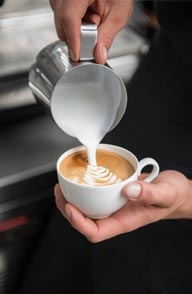Start 14-Day Trial Subscription
*No credit card required

Most Common Wine Cellar Cooling Unit Problems
The cooling system is an important part of every wine cellar. Discover the most common wine cellar cooling unit problems so you can avoid them in yours.
Having a well-functioning wine cellar is essential to ensure the proper aging of any type of wine collection. It provides a safe and reliable setting where wine can age gracefully without being disturbed.
No system is perfect, and leaks and malfunctions can cause significant disruptions, bringing even the most robust operation to a halt. Let's delve deeper into these issues to understand their impact.
Leaking Problems
Wine cellars rely on intricate piping systems to maintain optimal temperature and humidity levels. Unfortunately, even the best systems are susceptible to leaks.
Freon Leaks
Most cooling systems use refrigerant gas to maintain a cool temperature inside cellars. Better known under the brand name Freon, this gas turns into a liquid when cooled and compressed. Freon leaks are frustratingly common, and can have a devastating effect. They can harm the environment, endanger your wine collection and even impact your health.
- Environmental consequences : Freon gases have been linked to several environmental problems, such as ozone depletion and global warming.
- Wine damage : Freon leaks can cause major temperature fluctuations inside the wine cellars.
- Health risks : Human exposure to Freon can lead to dizziness, respiratory problems and headaches.
For those who wish to mitigate these risks, cooling systems such as the Cube LT by The Wine Square is a great alternative. This technology uses a water loop instead of refrigerant gas to keep your wine cellar cool. Eco-friendly and safe for your health, it provides a stable environment for wine aging.
Unit Complications
For wine cellar cooling systems, some of the most common problems are due to component failure or loss of efficiency over time, both of which lead to cooling difficulties.
Compressor Failure and Irritating Noise
Compressor problems are a serious issue for wine cellar cooling systems, as they directly affect the unit's ability to maintain the desired temperature. However, there are a few signs to help you identify a compressor failure. The first, and most obvious, is that your cellar is not reaching the desired temperature. Similarly, unusual noises from the compressor may indicate that something is not functioning properly.
Normal wear and tear of the device can lead to compressor failure. But in some cases, a faulty compressor may be a sign of underlying problems affecting its performance, such as leaks or electrical problems.
Another issue to consider with compressor-based cooling systems is excessive noise. These systems cycle on and off to maintain the desired temperature. While this cycling is normal, the process can be quite noisy and annoying.
If you want the space around your cellar to remain quiet, we recommend opting for a split system. Unlike traditional units, split systems allow you to place the compressor away from the wine cellar. The finest options on the market provide incredible flexibility, allowing you to place the compressor up to 100 feet from the cellar itself.
Evaporator Problems
Evaporator problems can disrupt the unit's ability to absorb heat and cool the air within the cellar. The first sign of a faulty evaporator is an ice build-up on the evaporator coil and uneven cooling. As a result, the compressor runs continuously but fails to effectively cool the space.
Evaporator problems are mainly due to refrigerant leaks, a dirty or damaged evaporator coil or a faulty defrost cycle.
Faulty Fans
There are two main fans in most wine cellar cooling systems. Inside the unit, the evaporator fan circulates cool air throughout the cellar space. Meanwhile, the condenser fan, located outside the unit, dissipates the heat extracted from the cellar into the surrounding environment. Fans play a vital role in wine cellar cooling systems, which is why faulty fans can be disastrous for a wine cellar.
Dirty blades, worn-out motors, and improper connections are the most common reasons your fan might not be working properly. Listen for unusual sounds coming from your cooling unit fans, such as rattling or scraping. These noises signal a potential problem, so investigate them promptly. Weak airflow from your cellar vents is another sign of trouble.
Temperature Sensor Malfunction
Irregular temperatures in your wine cellar may be due to a malfunctioning temperature sensor. This sensor plays a critical role in maintaining the perfect temperature for your wines. If the temperature sensor is faulty, it can’t properly control the temperature, which could spoil your collection.
If you suspect a temperature sensor malfunction, you can try calibrating the sensor if your cooling unit allows for it. If calibration doesn't solve the issue, or your unit cannot be calibrated, it's best to call in qualified technicians. They will be able to diagnose the problem and replace the sensor if necessary.
Preventative measures are essential to avoid problems with your wine cellar cooling system, and early detection can save your wine collection. If you notice that your unit is noisy, not cooling efficiently, or experiencing temperature fluctuations, don't hesitate to take action. Addressing minor troubles promptly can prevent ruined wines or expensive repairs.
Time is of the essence when it comes to your wine collection. Whenever an issue occurs to your cooling unit, the best course of action is to immediately contact a wine cellar repair service. These professionals have the expertise and tools needed to diagnose and solve the problem quickly and safely. Your wine cellar is in good hands with their help so you can have complete peace of mind.



